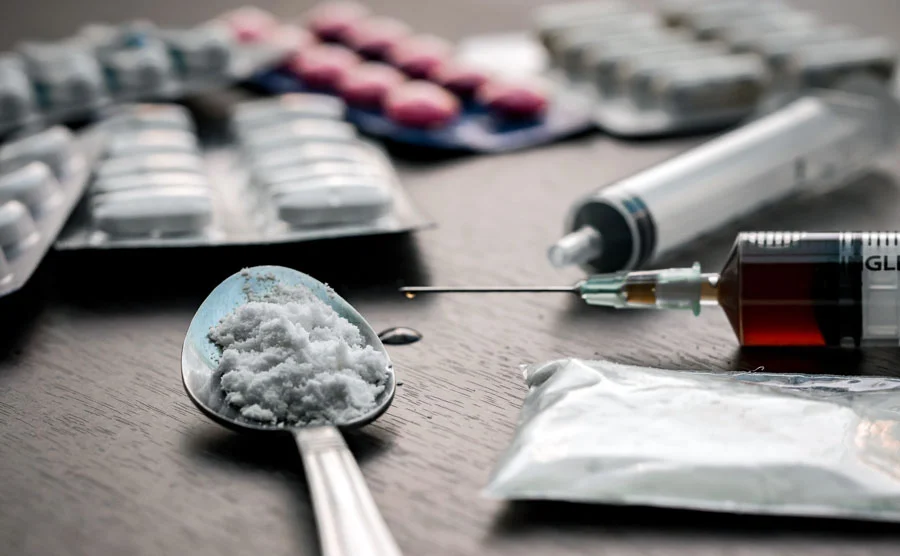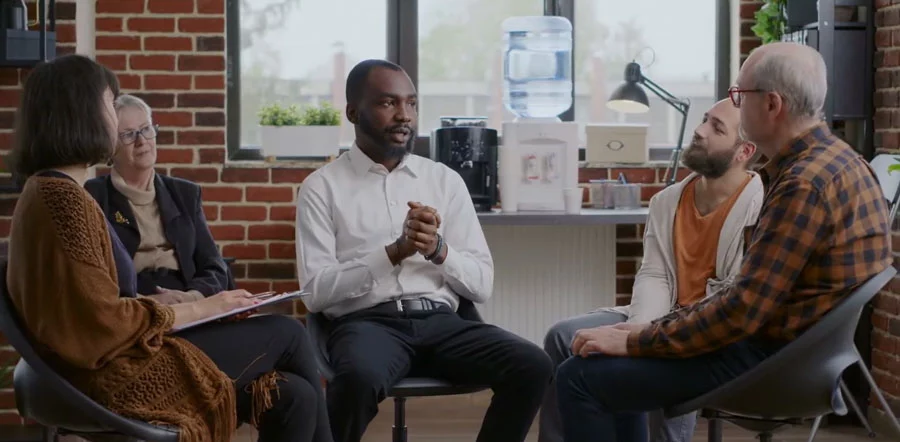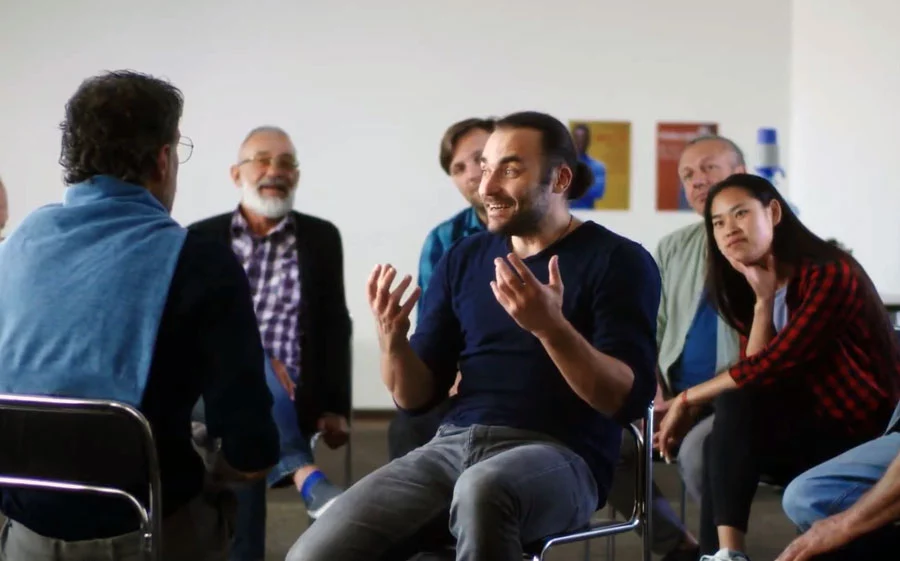Guiding a Loved One Toward Addiction Treatment
Getting clean was never on my radar. I was pretty far gone. At the darkest point in my substance abuse, I thought that I never even wanted to be clean. I wanted to do drugs until I died. Because of my family members, I finally sought treatment at Best Rehabs In Arizona and it saved my life. This can work for you too if you have even a little bit of fight in you. Keep reading for my hard-earned experience on how to help someone into rehab!
If you want to get help for a loved one with a drug or alcohol addiction, there are a lot of hurdles. Ultimately, getting sober is up to the individual. Substance use disorder tricks you into thinking you can never get clean. You think that your addiction will last the rest of your life. There doesn’t seem to be a lot of hope.
We tell ourselves a lot of things when we are in despair. To get over your substance abuse, it’s going to take an entire attitude change. Addiction recovery is possible if you are ready to give it a shot. When you finally get sick and tired of being sick and tired, an addiction treatment center like Best Rehabs In Arizona can save your life.
Stay tuned here for my own story of being helped to rehab, and how Best Rehabs In Arizonas helped me do what I could never manage on my own!
How Do You Leave A Drug Or Alcohol Addiction Behind?

I began using drugs in high school and was a regular users into my thirties. My brain was wired to need drugs. Substance abuse treatment was the last thing on my mind. My family members tried to convince me to get help, but I was dead against it. The idea of drug treatment never entered my mind.
My substance abuse completely changed my brain and my personality. Drug addiction will do a lot of things to your body, but the mental aspect of it is the most difficult thing to get past. Getting clean requires a lot of emotional support and an emphasis on your mental health. If you’re not mentally prepared, substance abuse seems impossible to get over.
Even if you are at your weakest point mentally, recovery from drug and alcohol addiction is still possible. One of the biggest things to keep in mind is that you can change your perspective whenever you want. You don’t have to always be a victim to your substance use. I finally realized this when I began the recovery process.
Substance Abuse Hurts More Than Just You.
I put my family through a lot of agony because of my substance addiction. I had multiple addictions that ruined my life and made me a shell of myself. I engaged in alcohol abuse and heroin addiction for so long that I was sure I would die. What finally made me decide to go to a treatment facility? A big part of it was for my family.
This sounds great, but it can also be the wrong approach sometimes. Ultimately, you have to get sober for yourself. You want to do it for your loved ones, but you’re the one that has to live with yourself. I finally was ready to face my drug abuse when I overdosed and nearly died. A family member found me after I overdosed and because of their quick thinking, I was able to get medical help quickly enough.
When finally came out of it, I was ashamed of what I had subjected my family to. It finally dawned on me that I needed to find a way to repay this relative for literally saving my life. That is where my recovery journey began. My family members set up an addiction intervention, and luckily I was willing to listen to them.
Embracing Drug And Alcohol Addiction Treatment

Addiction treatment seems terrifying when you first try it. If you find the right rehab program that works for you, you will find that you can greatly benefit from it. These days, there are many different treatment options depending on your specific addiction. The treatment program at Best Rehabs In Arizona offered me the ability to work on my issues head on and develop a treatment plan tailored to my addiction.
When you make the decision to accept treatment, you’ve already done more than many others. The success rate in recovery is unfortunately not very high. A lot of addicts never make the decision to get professional help. A lot of addicts get clean for a short period, but long term recovery is very tricky.
The rehab program that I went into didn’t just help me. There are many benefits for the people around you as well. I had many loved ones who attended family therapy around the same time that I was in addiction recovery. I had no idea that I had put them through so much pain until I finally started to clear my head of the drugs.
Warning Signs Of An Active Addiction
I was able to fool people for a long time. A few people close to me knew that I engaged in substance misuse, but most of my family had no idea that I was using drugs regularly. An addicted person is an expert in lying. Not just to others, but to themselves. You begin to believe your own lies after a while.
I was sure that I didn’t have a problem. No professional intervention or involuntary commitment was going to convince me otherwise. At this early point in my struggle, I was able to hide my addiction issues. This usually never lasts. The longer your addiction goes on, the more signs of addiction you begin to show.
The withdrawal symptoms can’t be hidden. Especially if you have a heroin addiction. Withdrawal symptoms from heroin include paranoia, stomach issues, agitation, and extreme cravings. If you go without heroin for too long, you become physically ill like you’ve never felt. At first, I was able to convince my family that I had chronic stomach issues, but they eventually saw through it.
How Do You Get Someone Into Rehab?
This is a question that family members of addicts struggle with mightily. Getting someone into rehab is more involved than just taking them to a rehab facility and dropping them off. Helping a person suffering requires a lot of care and patience. Building a support system around an addict is the first step. You have to let them know they are loved and supported.
It’s very hard to get clean if you have no support system. Some people have no family support. Luckily, once you get into the rehab process, you can find a lot of like-minded individuals who will take you under their wing. I had a lot of family support, but I also had a lot of support from the people in my treatment program. I stay sober because I have built great relationships with others in recovery.
You can encourage a loved one to get help, but you can’t force them. Being impatient with an addict will only push them away. Having a positive attitude and not passing judgment is the best option. Figuring out your loved one’s needs can be tricky, but you want to try and understand their struggle as much as possible.
How To Speak To An Addict

Most people struggling with addiction don’t want to talk about it with outsiders. It’s easy to confide in a fellow user because they have first-hand experience. You aren’t going to get an addict to open up to you if they sense any judgment. You’re not going to guilt anyone into getting clean. You can encourage them to seek treatment, but you have to be careful how you choose your words.
Identifying what kind of tone you use is also very important. Offering support to someone suffering requires a high level of understanding and a calm demeanor. There is so much denial in addiction, that just getting an addict to open up and be honest is rare. A lot of family members of addicts choose tough love.
Sometimes you will get so fed up that you will cut someone off and not allow them back into your life until they are clean. This can be a tricky approach to take with an addicted loved one. Cutting someone off with a substance abuse problem can go either way. With some people, it’s just the push that they need. With other people, it can be the end of a relationship.
Support Groups For Substance Use
Staying sober is just as hard as getting sober. Whether you have a drug or alcohol addiction, the day-to-day recovery process is a combination of highs and lows. Drug use changes the brain. That is one of the clearest signs of addiction. All you care about is the drug. When you have to retrain your brain to go through each day without the drug, you have to find different ways to cope.
The treatment center at Best Rehabs In Arizona had some really incredible group therapy sessions that completely changed my attitude. I had an intervention plan put in place to set me up for success, and I followed it as rigidly as possible. During my early days in recovery, I attended group therapy as well as individual counseling.
There is no step-by-step guide for everyone struggling with addiction, or even for the ways to prevent drug abuse in the first place, but if you find yourself in the right rehab center, you can develop a plan that will help you find the most effective way to get and stay clean. Excuses don’t hold much weight in recovery. You are expected to take personal responsibility for your actions, and develop the knowledge and skills that you’ll need to face your addiction head-on.
Mental Illness and Addiction

A very challenging aspect of recovery is how you discuss your mental health. A lot of individuals who are suffering from addiction are also suffering from some type of mental illness. How you approach these issues in recovery charts the course of your future. Substance misuse can greatly affect the way that we participate in talking about our struggles.
Many rehab programs offer dual diagnosis, so that you can work on your mental health issues and your addiction simultaneously. It may sound like a lot to take on at once, but it’s been proven effective in many situations. Committing to the process is the first step. If you commit to seeking help, you will find your confidence built as you work through the process.
When you’re in a group setting, it can be scary to discuss the issues that you never wanted to admit to yourself, let alone to a group of strangers. Putting yourself out there in this way may be uncomfortable, but this discomfort is what helps you grow. I was terrified to talk about what I was struggling with. When I finally opened up and started doing it, I found it to be the best way to begin healing.
The Basic Needs of A Recovering Addict
Once you get someone into rehab, it’s up to them to figure out whether they will make it work. We all have basic needs as human beings. For people struggling with addiction, those needs include support, compassion, and love. Every family member that I wronged was still there for me, even though they were fed up with my antics.
It’s important to set up healthy boundaries in addiction recovery. You still have to be yourself, and you can’t try to be something someone else wants you to be. I had family members who thought that I would be a flawless person once I treated my addiction. We are all still flawed, no matter what challenges we overcome. When you set boundaries, you maintain your individuality.
A Treatment Center with a Program Built Around You
Treatment begins and ends with you. It takes a lot of help to get and stay clean, but ultimately it’s up to you to make it work. When you go to rehab, there is a lot of unexpected outcomes. The best approach is to stay in the moment.
Respect the process and embrace the struggle. This approach will very likely save your life, and it’s one I learned at Best Rehabs In Arizona. If you or someone you love is struggling as I did, give yourself (or them) a fighting chance and reach out to their Admissions team. I know I’m more than glad I made that call, and that if I had not I might never have been able to claim sobriety or even still be alive.











 Doing Your Research Allows You to Explain Why You Need Help for Drugs
Doing Your Research Allows You to Explain Why You Need Help for Drugs Takeaways on Telling Your Family You Need Help for Drugs
Takeaways on Telling Your Family You Need Help for Drugs